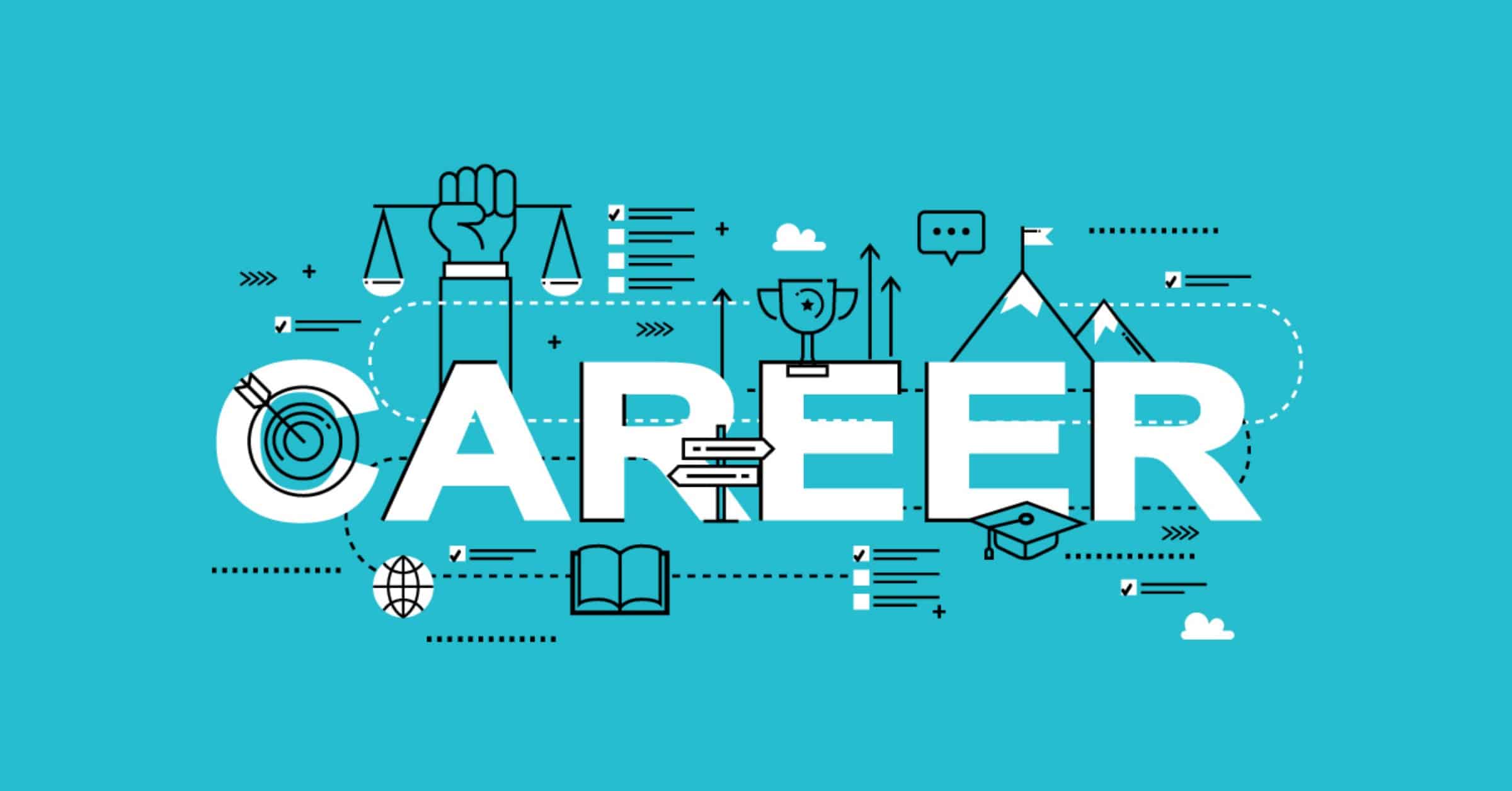While both a job and a career provide us with the means to support ourselves and our families, they do not mean the same thing. To plan your professional goals, it is important to understand whether you are looking for a job or a career. This article will explain the difference between a job and a career, how one affects the other, and how to transition from a job to a career.
What is a job?
A job is a work that you do to earn money to meet your basic needs. It can be full-time or part-time, and it can be short-term. Instead of a salary with benefits, you could earn an hourly wage or a fixed paycheck. You may need to learn specific skills related to that role, but not all jobs necessarily require a specialized degree or advanced training.
Companies expect their employees to do their individual jobs in exchange for regular pay and to be responsible for the duties that have been assigned to them.
A job can also be defined as a short- or long-term agreement between an employer and a worker. For example, a company may hire a local contractor to complete an office renovation job. They reach an agreement on payment terms, and the job is ended once the project is completed.
Read also: Job Position Synonym
What is a career?
A career is a long-term professional journey that you can choose based on your interests. It is the path you take in order to achieve your professional goals and ambitions. These goals may necessarily require a certain level of education or training. Individuals pursuing careers frequently have fixed salaries that include benefits such as stock options, retirement plans, pensions, and bonuses. They also gain non-monetary benefits such as personal pride, work satisfaction, and self-worth.
A career may last your entire life. You could work for a variety of employers in your chosen industry as you progress through your career.
Remember, career development takes time
Professional and personal development are two of the most important aspects of employee engagement. This applies to you as well as your team.
Jumping from job to job makes it more difficult to establish a professional career path. Time, relationship-building, self-reflection, difficult discussions, and a lot of learnings are all required for growth. You must be invested not only for your own sake, but also for the sake of your team. After all, the success of your team is also your success.
Employees can become disengaged and demotivated once they reach their peak and plateau. Making management a career focused on people development rather than a job or a title will make a significant difference in your performance.
How does a job affect your career?
Even if you don’t have a specific career path in mind when you start out, you will most likely hold a variety of jobs throughout your career. Consider each position you fill as a step in your life’s work. Your job may have the following effects on your career:
Jobs make up your career
A career is made up of all the jobs you’ve had, regardless of whether they’re related. You could spend decades working in the same department for the same organization. Alternatively, you could work a variety of seemingly unrelated jobs throughout your life, such as greenskeeper, executive assistant, and information technology specialist. They all help to define your career and connect you to other opportunities that interest you. Consider jobs to be short-term duties that can help you achieve your long-term goals.
Each job teaches you something new
Every job teaches you lessons that you can apply to future jobs. You will also acquire a wide range of skills, knowledge, and experiences. For example, perhaps your previous job as a retail clerk taught you how to handle difficult situations with tact. You may have learned good communication and customer service skills while working as a receptionist. Other roles could help you improve your writing skills, teach you how to deal with rejection, or teach you the value of perseverance and hard work.
Jobs provide opportunities for networking
With each job, you establish a professional network and community. You can provide yourself with the ability to reach out to these connections throughout your career if you maintain a productive and professional relationship with all of your colleagues and clients.
Is a Job the Same as a Career?
Some people think that a job and a career are the same. Having a career means you have education, experience, and jobs in one field or career cluster. Not having a career means most of your jobs are in completely different areas. It also can mean you are not advancing in pay or responsibility as you move from job to job.
Read also: Clear Signs You Need a Career Change
What’s a Job vs. a Career?
To know the difference between a job and a career. A job can be as simple as going to work to earn a paycheck. A career means that each of your jobs, experiences, and training programs is helping you advance in pay or responsibility. Is your work experience and education, in the end, leading you somewhere? Or are you just going from job to job with no plan?
The real difference between a job and a career is your attitude.
- People who want to pursue a career are constantly considering their long-term objectives. They are considering what they can do now to make those goals a reality in the future.
- Beginning job seekers frequently have to work long hours for little pay. It may take a few years to earn higher pay and have more interesting job responsibilities, but these lower-level jobs can lead to great opportunities.
Consider this: If life were a video game, a job would be only one level. Having a career implies that you are dedicated to playing the game in order to improve over time and advance to higher levels.

Similarities between a job and a career
To know the similarities between a job and a career. People all over the world prefer a career overdoing a single job, such as working in a factory. One could argue that a career is still a job in reality. However, the differences between a factory job and a career job are most noticeable in the wage vs. salary payment, monotonous similar work vs. progressing different work.
However, upon closer inspection, both fields are ultimately attempting to achieve monetary well-being for self and family. Consider my own case. I worked in a factory for more than three years after leaving my career as a secretary because it paid better. The factory’s hourly wage of $15 was more than double what I was earning as a secretary. Now, I understand that factory work is drudgery, but at the end of the day, what matters is the money you make. If the job as a secretary had paid more, I would never have left. And this way of thinking makes sense because we all work to earn money and want to make the most of it.
Another similarity between a job and a career is the type of work done. A teacher or a doctor, for example, will learn a skill and use it to complete their work. Similarly, in a job, a person learns skills related to his or her line. A textile factory worker may work in the looming area, the design area, or both. As a result, work in both fields necessitates both learning and application. A career requires an internship for a new employee, whereas a job requires an apprenticeship prior to the job.
Throughout the course of the job, both fields require project work. A factory worker may be required to participate in a project involving the development of materials ordered by a foreign company. Some special projects in a doctor’s career may require the doctor to travel abroad to study and treat a new type of problem. As a result, both fields involve work that is occasionally out of the ordinary.
A job is thought to be a place where people go to pass the time and learn new things. This passage of time and learning of new things occurs in any type of job, whether it is a factory job or a career job. Which job a person chooses is determined by the level of satisfaction he or she derives from it.
How to Turn a Job Into a Career?
What should you do if you believe you are currently working a job rather than a career and want to change your job into a career?
The first step is to identify some career goals that you want to achieve.
A common career goal, for example, is to find a type of work that you enjoy and would be happy to make a career out of.
To achieve this, you may need to try a variety of jobs before determining what truly motivates and excites you. This may involve taking some risks as you search for the right job.
Develop your skills
Once you’ve defined your ideal career, you can start thinking about the skills and resources you’ll need to achieve your objectives.
You should try to improve and deepen your existing skills that are relevant to your chosen career. This can be accomplished through formal education or on-the-job training.
Similarly, consider what skills you don’t currently have that would help you succeed in your chosen field, and then look for ways to improve them. This could be done through formal training courses or through work experience.
If you’re not sure what new skills you should be working on, ask people you respect and admire in your chosen field what they would recommend.
Seek out a mentor
If you’re serious about making your job a long-term career, you’ll need to find at least one mentor who can help you.
A good mentor would be someone in your profession who is senior to you and has a lot of experience.
If you approach them and explain that you want their mentorship to help you advance in your career, they are likely to agree – being asked to be a mentor is a huge ego boost for even the most senior of people!
Build your industry network
To expand your network of contacts, you should seek out other people in your chosen field. This will allow you to gain perspective and opinions from others while also allowing you to share your own experiences.
It will also assist you in developing a network of contacts that you can call upon when looking to advance your career.
Consider internships
If your current job isn’t in the field of your dreams, you should think about how you can gain experience in your chosen field, and an internship can help.
An internship will not only provide you with valuable experience in your field of study but will also demonstrate your dedication and commitment.
Examples of jobs and careers
There are many examples of a job and a career.
Examples of a job
- Civil engineer
- Copywriter
- Financial analyst
- HR consultant
- Customer service representative
- Digital marketing director
- Middle school science teacher
- Hairstylist
- Corporate recruiter
- Registered nurse
- Web developer
- Electrician
- Restaurant manager
- Police officer
Examples of a career
- Digital marketing director. Career in marketing
- Web developer. Career in web development
- Financial analyst. Career in finance
- Civil engineer. Career in engineering
- Middle school science teacher. Career in education
- Customer service representative. Customer service career
- HR consultant. Human resources career
- Copywriter. Career in content creation
- Hairstylist. Career in cosmetology
- Police officer. Career in law enforcement
- Registered nurse. Nursing career
- Restaurant manager. Career in food services
- Corporate recruiter. Corporate business career
- Electrician. Career in maintenance and operations
Job Vs Career: Conclusion
To summarize the difference between a job and a career. A job can be taken away at any time. A career can’t do that.
Because jobs are fixed and cannot be changed, they can become obsolete. A career is adaptable, and it can take many different paths to adapt to personal, societal, and technological changes.
Our entire lives are encompassed by our careers. When one career path is closed to us, we must assess the skills and experience we have gained throughout our entire career.









